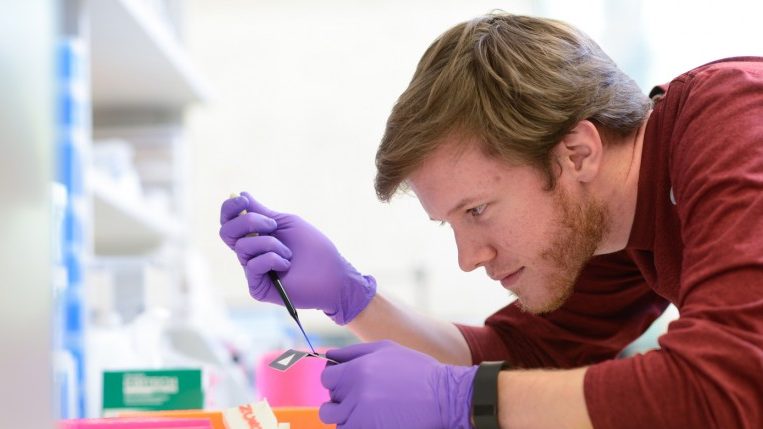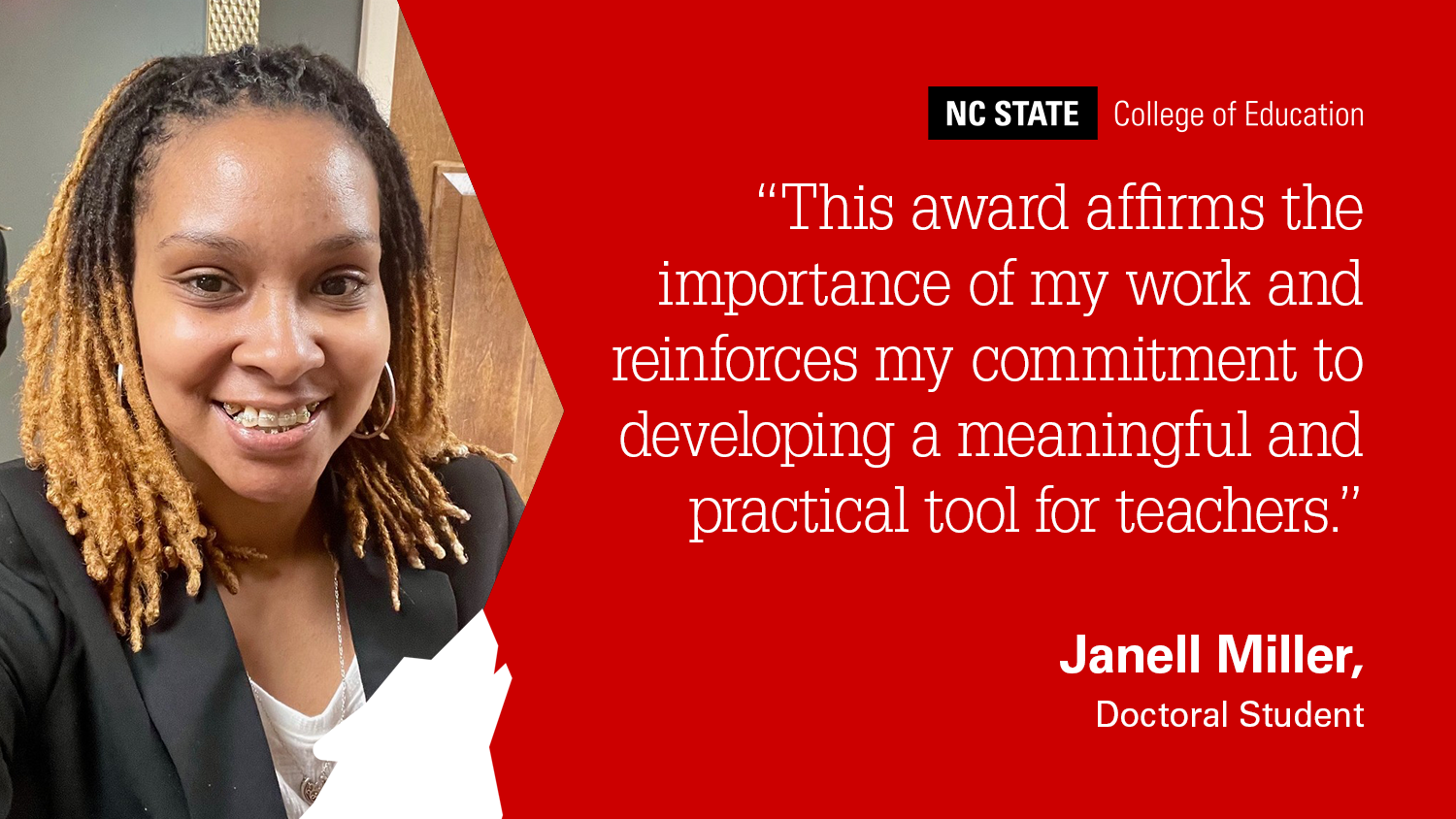Graduation to Vocation: Hayley Tate is Promoting Wellness through Recreation

Hayley Tate will graduate with a master’s degree in parks, recreation, tourism and sport management (PRTSM) in December 2021. Tate is a licensed recreational therapist with UNC Health in Chapel Hill, North Carolina. She is also an entrepreneur, offering wellness coaching through agricultural-based activities and working at her family-owned business, Tate’s Apiaries.
We recently spoke with Tate to learn more about how her time at NC State’s College of Natural Resources has benefitted her work as a recreational therapist and to discuss her motivations for pursuing a PRTSM degree.
How has the College of Natural Resources impacted you and prepared you for your future?
The PRTSM program has equipped me with knowledge and skills to help bridge the gaps in continuity of care following discharge from inpatient settings and community-based opportunities. Programs that link people to ongoing community-based mental and physical health care is a strong interest of mine, and the skills I’ve learned in this program, along with the knowledge of our professors, has equipped me to move forward with evidence-based approaches and a solution-oriented mentality.
Merging clinical and community-based efforts through my work as a recreational therapist is a mission that I knew I needed to pursue higher education for, and this program allowed me to explore various areas in depth, while learning so much about the organizations where I worked and the diverse experience of my cohort and professors.
What’s your favorite memory or class from your time at the College of Natural Resources?
My favorite memory from class was diving into an area completely new to me in the GIS and Spatial Analysis course with Dr. Jelena Vukomanovic. I became interested in the technical side of community planning and development through geospatial analysis and mapping, which gave me the opportunity to explore the tourism element of this program. I especially enjoyed creating a story map project that illustrated the benefits of green spaces in our communities and hospitals, to address how they can heal and unify our world.
What is unique about you or your work?
Something unique about me is that I entered this degree program with a clinical recreational therapist background and no prior experience working in community parks, recreation, tourism or sport. I wanted to begin by taking advantage of the option to earn a graduate certificate in Family Life Education and Coaching, within NC State’s Youth, Family, and Community Sciences program.
My confidence grew, and I decided I was ready to dedicate my time to a master’s degree. My courses easily transferred into the PRTSM program and prepared me to balance life and work, even while transitioning into a new job at UNC Health. After exploring various administrative and management degree programs, I decided this program would provide opportunities for me to become the most well-rounded, focusing my projects on after-care coordination and community engagement, which I would like to focus more intensively on with future endeavors.
What motivated you to pursue your work?
I am motivated to pursue work within the field of recreation because I feel it encompasses the whole person, focusing on overall wellness instead of just focusing on one avenue of rehabilitation. I enjoy collaboration among an interdisciplinary team, community engagement through events, and connecting people with valuable resources that help them cope and flourish through challenging situations. Our beautiful state of North Carolina has so many resources to contribute to people’s health and well-being, and recreation plays a vital role in creative ways we can prevent the perpetual cycle of illness.
What advice would you give students entering your major or field?
The advice I would give to students entering this major is to prepare to apply the major projects in each course to organizations where you work, or aspire to work, so that you find them fulfilling and valuable. Build connections by interviewing leaders, managers and people in various job roles so you may learn how they pioneered improvements and positive change.
Be proud to let them know what you’re working on, and doors will likely open. Most people light up when talking about their passions and will cheer you on as you work toward this degree, which is needed when times get tough. Applying the projects to real world experience will most likely give you clarity on your career path and set you on your way toward achieving it, one step at a time.
This post was originally published in College of Natural Resources News.
- Categories:


